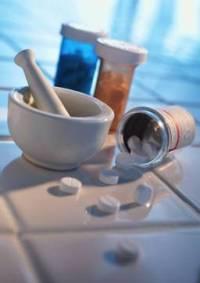Safe and Sound: Protecting Consumers from Dangerous Toys, Food, and Medicines
Dear Friends,
I believe that protecting people from danger should be a primary goal of the U.S. government. To that end, Americans need confidence in the products, foods and medicines they buy. Recent recalls of Barbie, spinach, and infant cold medicines have shed light on the dangers of some of the products on store shelves. This newsletter will update you on my plans to defend consumers from harmful products.
As always, please feel free to contact me at my offices in Maine or Washington, D.C. if you have any questions or thoughts that you would like to share with me.
Toy and Child Product Safety
As we have seen this past summer, many of the toys our children are playing with are hazardous. Some toys are contaminated with harmful metals, others break apart and become choking hazards, and others contain magnets that could kill children if swallowed. Parents should have confidence that the products they buy for their children are safe. That is why I am an original cosponsor of H.R. 4040, the Consumer Product Safety Modernization Act. The Energy and Commerce Committee, on which I serve, unanimously approved this bill on December 18, 2007. Just one day later, on December 19, 2007, the House unanimously passed H.R. 4040, so that not another Christmas will go by with parents wondering what items are safe to put under the tree.
 |
|
Rep. Allen speaks with Jane Letson, owner of Apple Bee Company, ABC Toys in Portland after a press conference announcing the SAFE Consumer Product Act.
|
H.R. 4040 will limit the amount of lead in children’s products and require independent third-party testing of products. The bill also increases funding for and the regulatory strength of the Consumer Product Safety Commission (CPSC). Under the Bush Administration, the CPSC has been chronically underfunded and understaffed, leaving consumers, and especially children, poorly protected.
H.R. 4040 will change the way toys are tested and the way safety laws are enforced. Congress is acting to protect our children because the current laws are simply inadequate. The flood of imports, many from China, into the United States has overwhelmed our old standards and caused the breakdown of our safety laws. The barriers have fallen and we must now work to repair them. We must act now to protect our children from harmful products and this bill is a step in the right direction.
Food Safety
Food safety in the United States is a growing problem. While experts agree that the U.S. food supply is one of the safest in the world, food-borne pathogens still make many people ill. In a tragic recent example, more than 200 people were sickened and at least three people died after eating spinach contaminated by E. coli bacteria. The Centers for Disease Control (CDC) estimates that food-borne pathogens cause 76 million illnesses and 5,000 deaths each year in the United States.
The House Energy and Commerce Committee is currently considering H.R. 3610, the Food and Drug Import Safety Act of 2007. H.R. 3610 strengthens and broadens the authority of the Food and Drug Administration (FDA) in an effort to improve the safety of imported food and drugs. The legislation would require that all countries or facilities wishing to import food or drugs into the United States must obtain a certification or “equivalency agreement” from the U.S. government stating that the country or facility has adopted food safety standards that are at least as rigorous as those applied in the U.S. to domestically produced food. Countries that voluntarily agree to even stricter standards could be eligible for expedited import processing. These agreements will improve food safety by requiring importers to shoulder some of the enforcement and regulatory burden, address food safety problems at the source rather than at the border, and create a level playing field for domestic food producers.
 |
The legislation would also mandate country of origin labeling for all food, drugs, and medical devices, mandate labeling for all meat, poultry, and seafood products that contain carbon monoxide, expand the recall authority of the FDA and ban closure or consolidation of FDA field laboratories and district offices.
The bill is still a work in progress, and I am concerned about proposals to restrict the number of ports that can process food and drug imports, and create user fees on imported food and drug shipments. However, I am confident that compromises can be worked out in a manner that is fair to businesses and consumers in Maine. With these improvements, I am eager to see this bill move forward because equivalency agreements, labeling requirements, and other FDA reforms are an important step forward for food safety.
Medicine Safety
When their children are sick, parents will do anything to make them feel better. Many parents turn to over the counter (OTC) medicines that claim to relieve the symptoms of the everyday cold and other illnesses. Recently, however, some cold medicines being marketed for children have been recalled because they have not been shown to be effective and can even do more harm than good.
Rep. Henry Waxman (D-CA) and I introduced H.R. 4083, the Non-Prescription Drug Modernization Act of 2007. The bill would require the FDA to undertake a comprehensive review of the monograph system, the regulatory standards which set forth permissible marketing conditions for OTC drugs, to determine whether there are any monographs that need to be reviewed, amended, or repealed. Monograph standards specify permitted active ingredients, labeling and other general requirements.
The bill would also move the oversight responsibility of OTC direct to consumer advertising (DTC) to the FDA. OTC advertisements are currently regulated by the Federal Trade Commission, not the FDA.
The basic guiding rule of medicine comes from Hippocrates: 'first, do no harm.' We now know that widely advertised over the counter cough medicines can pose a direct and serious danger to children. Our legislation will restore accountability to the process of approving and marketing the medications we give to our children. It will provide the FDA with the authority and resources it needs to protect our kids and reassure parents that the medicines marketed for children are safe and effective.
It is the responsibility of the federal government to protect the American people from harm. Whether threatened by toys, food, or even medicine, agencies must conduct oversight in order to stop harmful products from reaching the living rooms, kitchen tables, and medicine cabinets of families across the country. I will continue to fight to provide agencies like the FDA and CPSC with the tools they need to protect consumers.
I am honored to represent the people of Maine and am grateful that you continue to share your thoughts with me. This mutual communication helps us continue our fight to make Maine values Washington values. I encourage you to forward this message to friends, family members, or colleagues who may be interested in these matters. Please feel free to continue to contact me on issues important to you.






